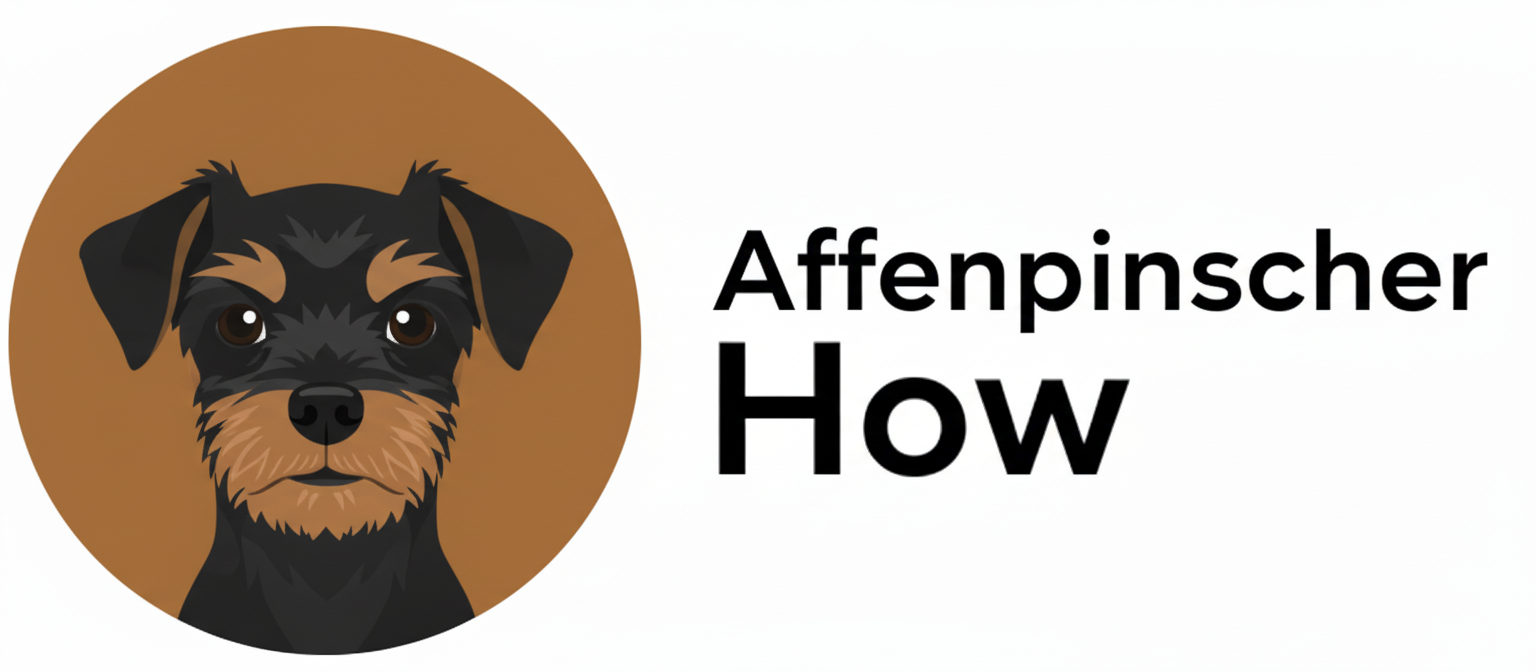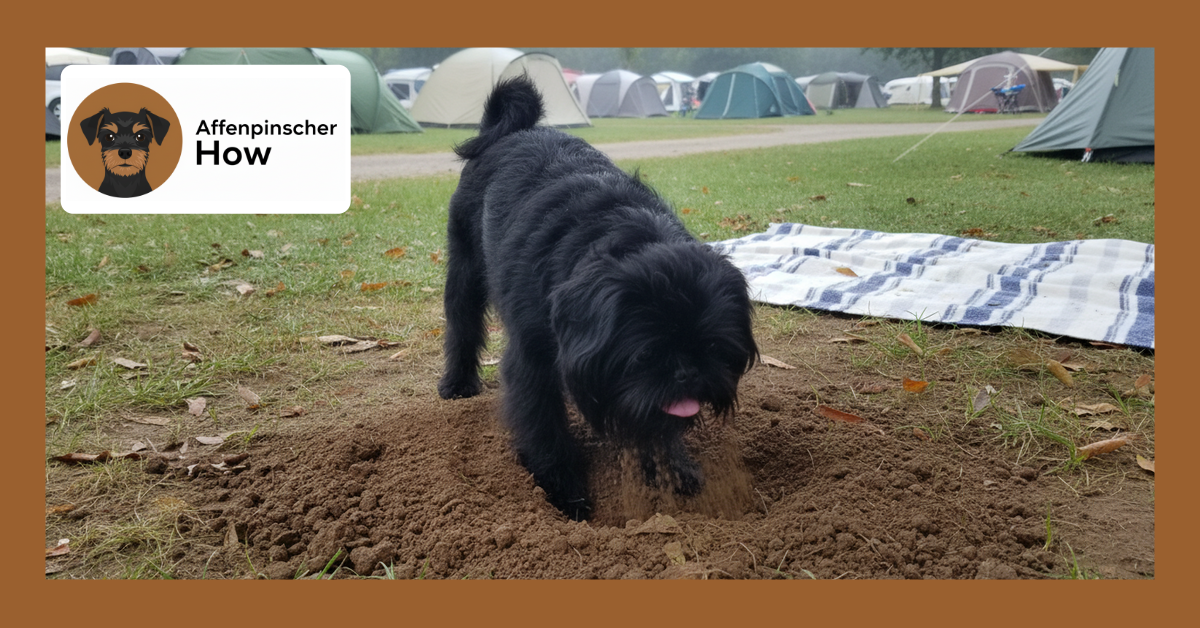Think training an Affenpinscher is impossible? You’re not alone. These spirited toy dogs have earned an undeserved reputation for being stubborn and difficult to train, but the truth is far more encouraging.
Most Affenpinschers can master basic obedience commands within 8 to 12 weeks of consistent training. While their independent nature requires patience, these intelligent dogs respond exceptionally well to positive reinforcement when trained correctly.
The key lies in understanding their unique temperament and adapting your approach accordingly. Let’s explore exactly how long it takes to train an Affenpinscher and the proven strategies that deliver results.
Understanding the Affenpinscher Training Timeline
Training an Affenpinscher follows a predictable pattern when approached systematically. The American Kennel Club emphasizes that while these dogs are intelligent, their independent streak requires a tailored training approach.
Here’s what you can realistically expect:
- Weeks 1-2: Basic attention and name recognition
- Weeks 3-4: Simple commands like “sit” and “stay”
- Weeks 5-8: Reliable recall and leash walking
- Weeks 9-12: Advanced commands and consistent obedience
Keep in mind that individual dogs may progress faster or slower depending on their personality, age when training begins, and consistency of practice.
Why Affenpinschers Take Time to Train
Several breed-specific traits influence training duration. Understanding these characteristics helps set realistic expectations and improves your success rate.
Independent Temperament
Affenpinschers were bred to work independently as ratters. This history created dogs who think for themselves rather than constantly seeking human direction.
Unlike highly biddable breeds like Golden Retrievers, Affenpinschers question commands and may choose when to comply. This isn’t defiance—it’s their natural instinct.
High Intelligence with Selective Focus
These dogs score 7 out of 10 for focus and responsiveness according to recent breed assessments. They learn quickly but may become bored with repetitive exercises.
Their intelligence works against traditional training methods that rely on endless repetition. Instead, they thrive on variety and mental stimulation.
Size-Related Challenges
Small dogs often develop behavioral quirks when training isn’t adapted to their size. Affenpinschers may feel overwhelmed in large training classes or intimidated by correction-based methods.
| Training Factor | Affenpinscher Score | Impact on Timeline |
|---|---|---|
| Intelligence | 8/10 | Faster learning |
| Independence | 9/10 | Longer compliance time |
| Focus | 7/10 | Moderate attention span |
| Food motivation | 6/10 | Requires varied rewards |
Proven Training Strategies That Work
Success with Affenpinschers comes from working with their nature rather than against it. These strategies have been proven effective by professional trainers and breed experts.
Short, Frequent Training Sessions
Limit sessions to 5-15 minutes, conducted 2-3 times daily. Longer sessions lead to boredom and reduced effectiveness.
This approach maintains their attention while preventing the frustration that can derail progress. Many owners see better results from three 10-minute sessions than one 30-minute session.
Positive Reinforcement Focus
Never use harsh corrections or punishment with Affenpinschers. These methods damage trust and can make them more stubborn.
Instead, use high-value rewards including:
- Small, soft treats (freeze-dried liver works well)
- Enthusiastic praise and petting
- Favorite toys or brief play sessions
- Novel experiences as rewards
Early Socialization Priority
Start socialization before 16 weeks of age when possible. Well-socialized Affenpinschers are easier to train and less likely to develop territorial behaviors.
Puppy classes specifically designed for small breeds offer excellent socialization opportunities while teaching basic obedience skills.
Step-by-Step Training Plan for Affenpinschers
Follow this proven progression to maximize your training efficiency and reduce the overall timeline.
Foundation Phase (Weeks 1-4)
- Establish routine: Feed, train, and exercise at consistent times
- Name recognition: Say their name and reward attention
- Basic sit: Lure with treat, reward when bottom touches ground
- Stay command: Start with 2-3 seconds, gradually increase
Building Phase (Weeks 5-8)
- Recall training: Practice in secure areas with high-value rewards
- Leash manners: Reward loose leash walking
- Down command: Teach from sit position using lure method
- Impulse control: “Wait” before meals and doorways
Advanced Phase (Weeks 9-12)
- Reliable obedience: Practice commands in various locations
- Advanced tricks: Shake, roll over, or play dead
- Problem-solving: Address any behavioral issues
- Real-world application: Practice commands during daily activities
Common Training Challenges and Solutions
Even with the best approach, you’ll likely encounter some obstacles. Here’s how to handle the most common issues.
Excessive Barking
Affenpinschers are naturally alert dogs who may bark at every sound. For comprehensive strategies on managing this behavior, check out our Affenpinscher barking solutions guide.
Never yell at barking, as this reinforces the behavior. Instead, redirect their attention and reward silence.
Stubborn Compliance
When your Affenpinscher knows a command but chooses not to obey, avoid repeating the command multiple times. This teaches them to ignore you.
Instead, gently guide them through the motion and reward completion. Consistency is more important than perfection.
Lack of Food Motivation
Some Affenpinschers aren’t highly food motivated compared to other breeds. Experiment with different reward types including praise, toys, and environmental rewards like going outside.
Factors That Affect Training Speed
Several variables can significantly impact how long it takes to train your Affenpinscher. Understanding these helps you adjust expectations and modify your approach.
Age When Training Begins
Puppies under 16 weeks old typically learn faster due to their natural curiosity and fewer established habits. Adult dogs may take 2-4 weeks longer to reach the same milestones.
However, adult Affenpinschers often have better attention spans once engaged, which can accelerate certain aspects of training. For detailed techniques specifically for puppies, explore our Affenpinscher puppy recall training guide.
Previous Experiences
Dogs with negative training experiences or those who’ve developed unwanted habits need additional time to overcome these patterns.
Rescue dogs may require extra patience as they learn to trust and bond with their new families.
Owner Consistency
The most critical factor is your commitment to consistent, daily practice. Sporadic training sessions extend the timeline significantly.
Dogs who receive training from multiple family members need everyone to use the same commands and rewards to avoid confusion.
Measuring Training Progress
Track your Affenpinscher’s development using these concrete milestones. This helps you stay motivated and identify areas needing additional work.
By week 4, your dog should:
- Respond to their name consistently
- Sit on command 80% of the time
- Stay for 10-15 seconds
- Show improved leash manners
By week 8, expect:
- Reliable basic commands in familiar environments
- Successful recall in secure areas
- Calm behavior during grooming and handling
- Reduced inappropriate barking
By week 12, your Affenpinscher should demonstrate consistent obedience regardless of distractions, location, or time of day.
Training an Affenpinscher requires patience and understanding, but the results are absolutely worth the effort. Most dogs achieve reliable basic obedience within 8-12 weeks when owners commit to positive, consistent training methods. Remember that their independent nature isn’t defiance—it’s simply how they’re wired. Work with their intelligence and curiosity, keep sessions short and engaging, and celebrate small victories along the way. For more advanced training techniques, consider our comprehensive Affenpinscher obedience training guide. With the right approach, your Affenpinscher will become a well-mannered companion who brings joy for years to come.
Frequently Asked Questions
Are Affenpinschers harder to train than other small dogs?
Affenpinschers aren’t necessarily harder to train, but they do require a different approach. Their independent nature means they need more engaging, varied training sessions compared to naturally eager-to-please breeds. With proper techniques, they learn just as effectively as other toy breeds.
Can you train an older Affenpinscher?
Absolutely! While puppies may learn slightly faster, adult and senior Affenpinschers can successfully learn new commands and behaviors. Older dogs often have better focus during training sessions, which can actually accelerate certain aspects of training. Expect to add 2-4 weeks to the typical timeline.
How often should I train my Affenpinscher?
Train your Affenpinscher 2-3 times daily in short 5-15 minute sessions. This frequency maintains their attention while providing enough repetition for learning. Daily consistency is more important than session length for this breed.
What’s the best age to start training an Affenpinscher?
Begin basic training and socialization as early as 8 weeks old. The critical socialization period ends around 16 weeks, so early training provides the best foundation. However, Affenpinschers can learn at any age with appropriate methods.
Why does my Affenpinscher ignore commands they know?
This behavior typically stems from their independent nature rather than lack of understanding. Ensure you’re using consistent commands, high-value rewards, and avoiding repetition of ignored commands. Sometimes they’re simply choosing when to comply, which is normal for the breed.
Do Affenpinschers need professional training?
While not strictly necessary, professional training can be beneficial, especially for first-time Affenpinscher owners. Look for trainers experienced with toy breeds who use positive reinforcement methods. Group classes also provide valuable socialization opportunities.
How do I know if my Affenpinscher training is working?
Look for gradual improvements in attention, reduced resistance to commands, and increased willingness to engage during training sessions. Progress may be slower than with other breeds, but consistent small improvements indicate your methods are working effectively.

